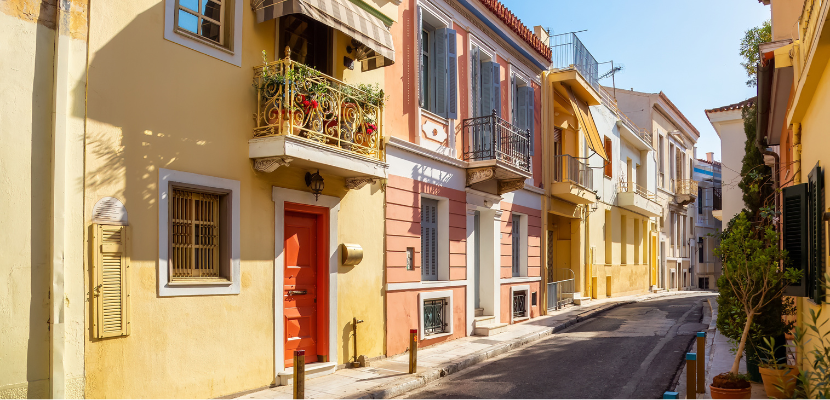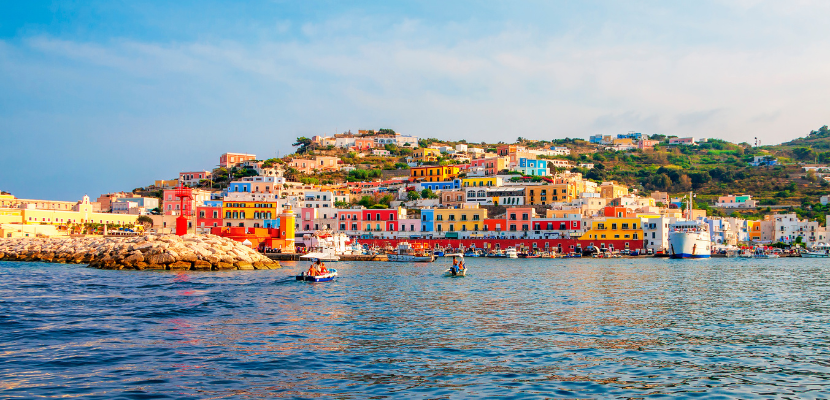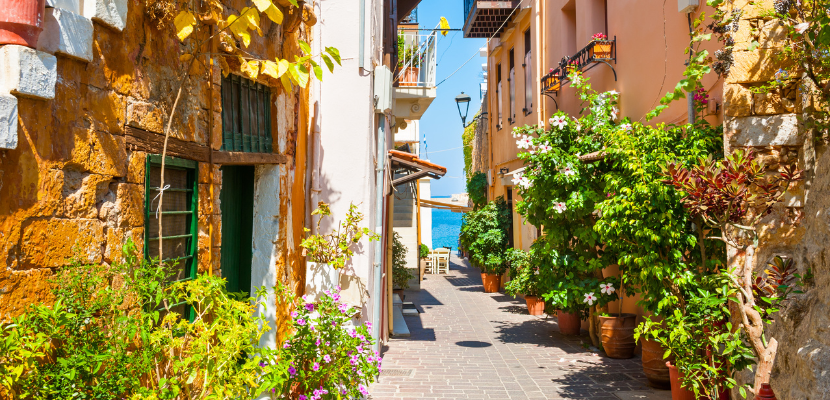
Both famed for their history, beautiful coastlines and approach to life, Greece and Italy are two of our favourite holiday destinations.
They are also much-loved places to buy a second home – whether a villa in Crete or Tuscany, or a village stone house in Corfu or Puglia.
But both countries also offer enticing tax incentives to persuade people to relocate who make their money – or receive an income – from outside the country. Whether you are a retiree or a wealthy professional, could one be for you?
Non-dom schemes for the wealthy

With the UK making key tax changes and driving out hundreds of millionaires, it’s not surprising that these two countries have moved onto the radar of people seeking preferential regimes.
Italy offers a lump-sum scheme at €200,000 per year; Greece does the same for €100,000 – both on overseas-sourced income. Both flat-tax schemes are available to new residents only and last for 15 years.
It is believed that between 1,500 and 4,000 have taken up the Italian scheme, with many moving to Milan, Lake Como, northeast Italy or Rome.
Meanwhile, it is reported that around 1,100 millionaire foreigners have moved to Greece in each of the past two years, with the Athens area, Crete and Mykonos especially favoured. The influx of wealthy foreigners has helped push up prices in both Athens and Milan.
Of course, you also need to have the right to live and work in either country – and if you are not an EU passport holder, this means a visa.
In Italy, with this regime, it’s usually the Investor Visa (or golden visa) which requires investing €250,000 in a start-up, €500,000 in a company, a €1m philanthropic donation or €2m in government bonds.
In Greece, in order for an individual to qualify for the tax regime, you need to make a minimum investment of €500,000 within three years, so it is usually combined with a golden visa (which requires an investment of €800,000 in many popular areas of Greece now).
7% flat tax scheme

Both countries offer those earning or receiving money from outside the country the chance to benefit from a 7% flat-tax regime.
The rate is the same, but the applicability differs: in Greece you can live in a qualifying area regardless of town size, for 15 years.
In the Southern Italy scheme – valid for 10 years – you need to live in a qualifying region and in a town with fewer than 10,000 inhabitants.
So, this includes the central ‘Mezzogiorno’ regions of Lazio, Marche or Umbria – as well as the southern regions: Abruzzo, Molise, Basilicata, Calabria, Puglia, Campania and the islands of Sicily and Sardinia. Around 600 people have taken up the Italian scheme.
As with the other flat-tax regimes, you will need to apply for the legal right to residency if you do not hold an EU passport.
In Italy, the Elective Residency Visa requires an annual passive income of at least €31,000 per person or €38,000 for married couples.
In Greece there’s the Financially Independent Person (FIP) visa, also known as the Greece Retirement Visa. It is obtained by first applying for a D-visa (long-term visa) from a Greek consulate in the UK, which then allows you to enter Greece and apply for the FIP.
You cannot work on this three-year visa but must show an income of at least €3,500 per month and proof of financial means to support yourself. You can rent or buy a property.
Cost of living and property ownership

Income tax is, of course, only one of the things to consider. The cost of living in both Italy and Greece is lower than in the UK.
Greece is more affordable overall – around 47% lower than the UK – and Italy is 12% cheaper, according to numbeo.com. But that Italian average doesn’t reflect that southern Italy is considerably more affordable than the north, so the costs for Puglia, for example, may be similar to Crete.
Property is another factor: how much will it cost you to buy your ideal retirement home?
In Neo Chorio, near Chania in Crete, you can find a lovely four-bedroom home for €230,000.
You can find a range of properties from €150,000 within easy reach of Pescara, the liveable beach city on Italy’s Adriatic coast.
Don’t forget to factor in buying costs. Allow up to 10% for Greece for a second-hand property, but in Italy it could be 7–15%, depending on the location. Research local annual property taxes too.
Infrastructure and access must also be considered – parts of rural Abruzzo or small Greek islands may be a long way from a hospital or other amenities. Property prices often reflect this. Areas close to larger cities with good healthcare facilities – Heraklion in Crete, for example, or Bari in Puglia – may be a better choice.
Finally, consider local inheritance laws and take legal advice on making a will.
Thinking about relocating to Greece or Italy? Browse our latest properties for sale in Greece and properties for sale in Italy, or explore our expert Buying Guides for more practical advice on making your dream move abroad.